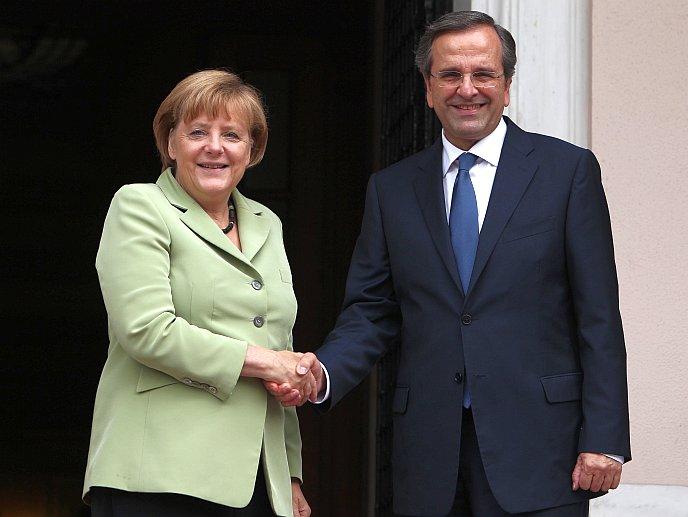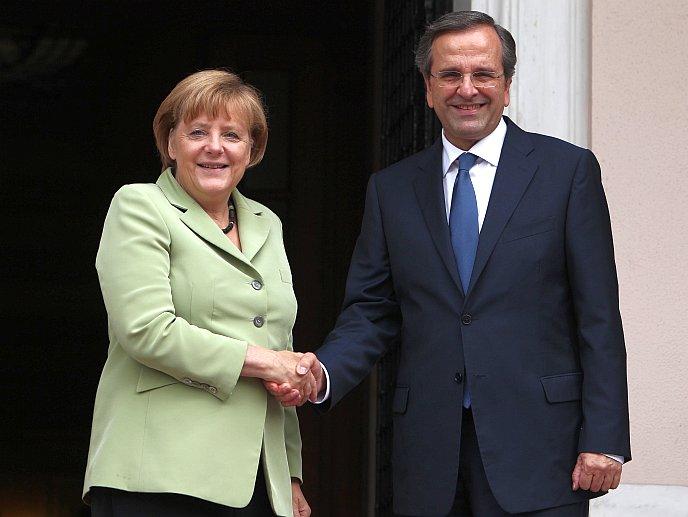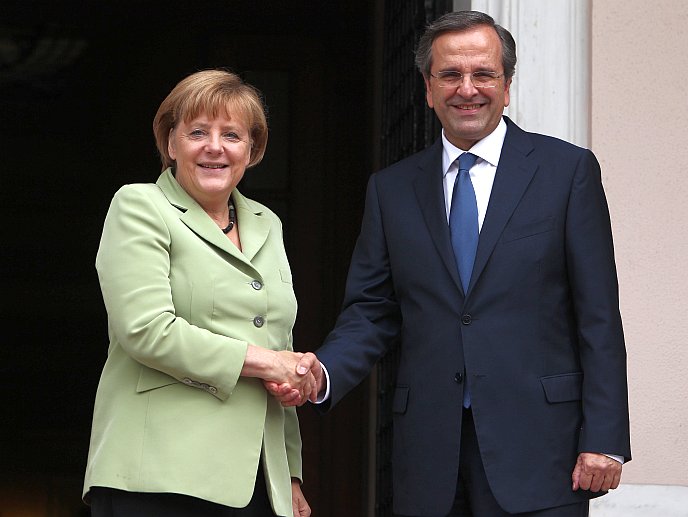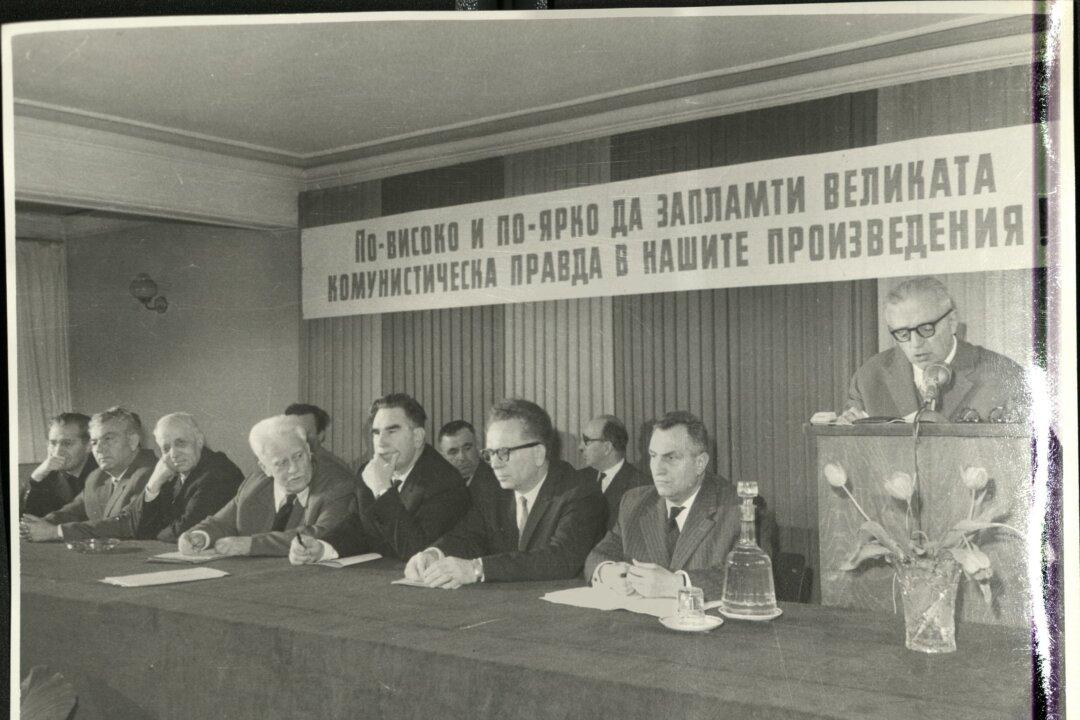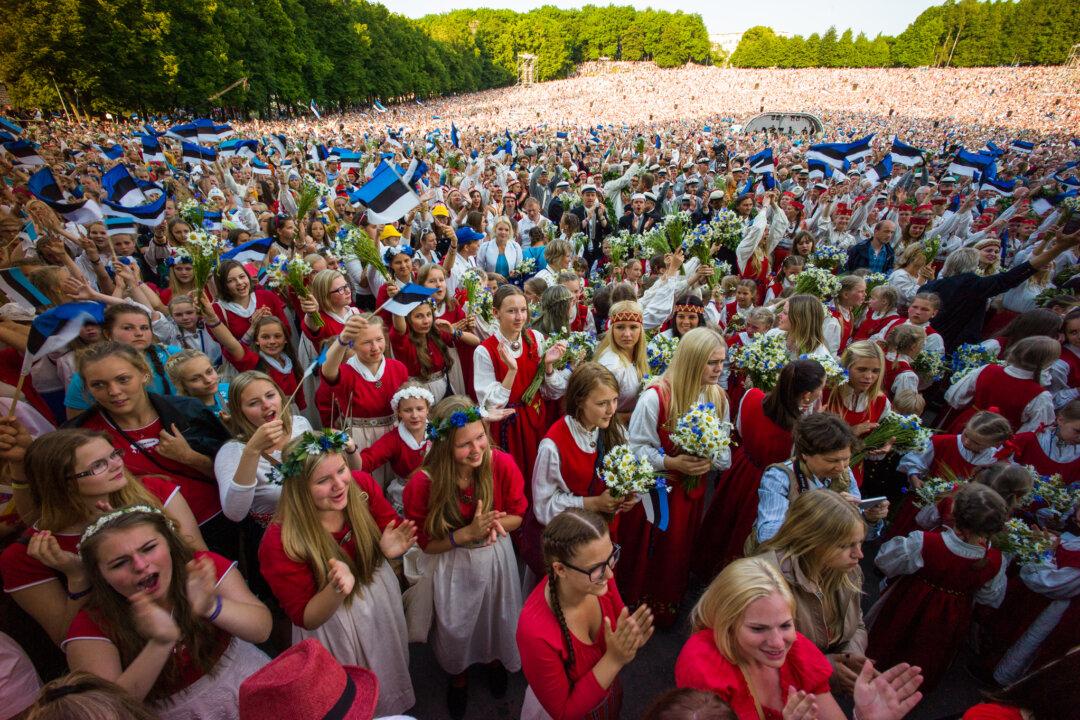There was a startling difference between the political and social strata in the Greek capital of Athens Tuesday. While German Chancellor Angela Merkel was indoors calling Greece “friend and partner” and pledging support to the heavily indebted Mediterranean state, out in the streets tens of thousands of protesters were clashing with police, wanting Merkel “out.”
Nearly 80,000 demonstrators at Syntagma Square in front of Parliament and another 6,000 at Omonoia Square in downtown Athens threw stones, burnt swastika flags, tried to bring down security fences, and clashed with the 7,000 security officers recruited to maintain social order during Merkel’s visit—the first in five years. Her visit lasted only a few hours.
Ambulances took elderly people to hospitals amid the tear gas that was thrown into the crowd.
Witnesses said that this time, the police were well prepared for all kinds of protesters and did not even allow talking or shouting. Police instead immediately responded with tear gas, kicking, and arrests. It was unlike past protests, when demonstrators had more freedom and police were more tolerant.
People were venting their anger against the draconian fiscal and budget restrictions imposed on Greece in exchange for bailout money from the European Union and the International Monetary Fund (IMF). Many Greeks blame Germany for being the cause of their financial troubles, although Germany is the biggest contributor to the aid package.
On the political level, things seemed entirely different. Merkel lauded Greece’s “great progress.”
“We see light at the end of the tunnel. Greece has completed a large chunk of the road. The course is tough, but completely worth it,” said Merkel after her meeting with Greek Prime Minister Antonis Samaras. “It is our common interest to regain our credibility within the eurozone.”
The chancellor said that she came to Athens with deep conviction and awareness that the country is going through a very difficult period. She confirmed that the two countries remain friends and partners in the EU and NATO.
“I welcome a friend,” said Samaras after his meeting with Merkel. The prime minister made it clear that his country would honor its obligations.
“The country is bleeding but is determined to remain in the euro,” Samaras said. “We are not asking for more money or favors—but only a chance to stand on our feet.”
“Those who are betting that Greece will collapse and that Europe will suffer severely are losing the bet,” added Samaras.
Merkel also had a short meeting with Greek President Karolos Papoulias, who said that her visit is a very important one during a difficult time for Greece.
“People have almost exhausted their strength, and we should think of measures to give hope to those who are suffering,” said Papoulias.
Merkel’s visit came just one day after a meeting in Luxembourg, where Eurogroup Chairman Jean-Claude Juncker, alongside IMF Managing Director Christine Lagarde, affirmed that “substantial progress has been made over the last weeks,” and he urged the Troika and Greece “to finalize their negotiations and agree on ways to close the fiscal gap for 2013 and 2014 as soon as possible.”
Greece is counting on a positive outcome from the EU-IMF talks in order to unblock a $40 million (31 million euros) chunk from Greece’s EU-IMF bailout package. Samaras announced last week that state money would be exhausted by November.
Juncker stressed that by Oct. 18 at the latest, Greece needs to implement the 89 actions agreed upon last March before it can get the next bailout tranche.
Greece’s crisis came to a head in 2009, when the government, faced with nearly $400 billion in debt, went to its European counterparts asking for help. Eurozone leaders prescribed stern budget cuts and a series of bailout packages lasting until 2015, when the debt would be cleared.
With additional reporting from Athens, Greece, by Neli Magdalini Sfigopoulou
The Epoch Times publishes in 35 countries and in 19 languages. Subscribe to our e-newsletter.
